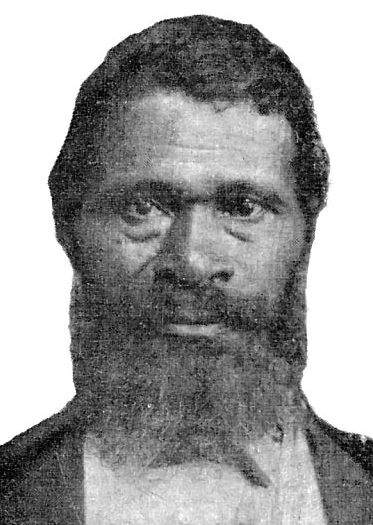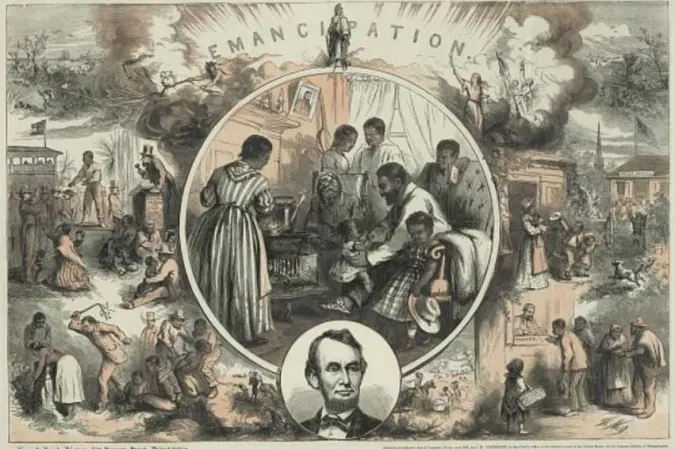Were the Freed People Free?
New Year’s Day is also the anniversary of Lincoln’s January 1, 1863 signing of the Emancipation Proclamation. To celebrate the signing, Tomas Nast sketched a rich cartoon about the impact of emancipation.
Were the freed people free?
When people think of the United States. They imagine better opportunities, equal rights, freedom, a better life or like they see it, a new life. But was it really? This biggest threat to the promise of freedom is found in the ways we lie to ourselves. America’s most enduring contradiction of the truth can be found in the practical reliance on the slave trade since 1619 in the face of the 1776 ideals of liberty. The painful reality was made clear with the loss of 620,000 American lives in military conflict during the U.S. Civil War from 1861-1865.
How did the formerly enslaved define freedom?
Enslaved people were never able to enjoy the equal freedom that the US animated to have. All colored people wanted to have an equal share in the making of the world in which they lived. Equal opportunities were all they claimed for. Respect was what they asked for, something so simple but couldn’t have because of their skin color. All this discrimination against honest hard working people who just seek a better life style kept us blind to our common human potential. Judging someone by appearance is meaningless in the end. They felt unwanted everywhere they went and were living such a limited life, maybe even worse than when they were slaves. All they asked for was equal humanity. They were willingly open to continue their labors with a fair wage but Southerners refused to accept them as equal people so something had to be done. They defined freedom as independence just as the colonists defined it with the British; they wanted to be left with the choice to use their equal access to resources and opportunities to provide for themselves.
In what ways did freed people claim their freedom during the reconstruction?
Frederick Douglass, an African American social reformer mentioned in one of his speeches. ‘What a black man wants’- “Give him a chance to stand on his own legs! let him alone!”
What Frederick tries to put out is to leave black people unbothered. Let him live on his own with the same opportunities and preparation and education and see how they can also contribute to society as well or even better than white people when given a chance. Once these opportunities were offered; hard working freed people immediately took advantage and sought education, learned, worked, did everything possible to prove their skills. Africans started forming alliances with poor and low class white people to gain more support and power during this reconstruction era. Most rich whites were opposed to the movement. Later on, especially in 1868 African American politicians were elected, blacks now felt more support seeing colored leaders fighting for a better life and treatment for their race.
Africans gained strength in knowing their worth, an enslaved was asked to come back to live with his old owner who mistreated them for years and he wrote a letter setting his foot down and refuse to go back to their old lifestyle.
Jourdon Anderson an enslaved African American who wrote this Letter to his old owner:

https://news.lettersofnote.com/p/to-my-old-master?s=r&utm_campaign=post&utm_medium=web
In what ways did white southerners limit the freedom of freed people during the reconstruction ?
Of course, white southerners were not happy at all to see all these accomplishments the freedmen had conquered and wouldn’t just settle to let it happen. They were opposed to blacks having any type of power, and groups started forming against the reconstruction movement. A very familiar and known large group is the Klu Klux Klan. Soon the angry white mobs started taking action and African American politicians were now being harassed. Republican leaders were being assassinated and anyone who supported them was running at risk as well. The white mobs were raping, killing, brutalizing and terrorizing black people, houses were getting burned down, Lynching’s were made and peoples votes were influenced. Voter turnout for blacks dropped from 85% to 2%. Enslaved were once again helpless. Black codes then came to make things worse. There were a series of laws restricting blacks even more to corner them into returning to slaves. Whites were PROHIBITED to marry a black or mixed person. Every black or mix was taxed annually $1,866 just for their race. Whites were prohibited to sell, distribute, trade, share or give any substance, alcohol, or weapons such knives or guns. If they considered you dishonest, sinful, unemployed or homeless they could take you to jail and even get you killed.
The Historical Legacy of Racism and Justice Today
Just imagine yourself in those situations. The U.S lied to them, gave them the taste of rights and freedom and snatched it right back. Many were brave enough to step up and make a difference. Who were these people? And what did they do to prevent what happened to them from happening to us today? Below there’s further information on our nation’s bravest civil leaders.
Frederick Douglass– He made freedom known asan educated freed slave. He embraced the women’s rights movement, helped people on the Underground Railroad.
Harriet Tubman– A women born into slavery escaped and made 13 missions to rescue more than 70 slaves using safehouse known as the Underground Railroad.
Rosa Parks– The United States Congress has honored her as “the first lady of civil rights” and “the mother of the freedom movement”. Most Known for refusing to sit on the back of the bus.
Martin Luther King Jr – Was a minister and Activist who organized and led marches for blacks’ right to vote, desegregation, labor rights, and other basic civil rights.
Ernest Green and the Little Rock Nine – He was one of the first black students to integrate at Central High School in Little Rock, Arkansas, following the Supreme Court ruling to desegregate in 1954. Green is the oldest of the “Little Rock Nine,” a group of high school students who entered Central High School on the morning of September 25, 1957, with an escort of paratroopers.
Thomas Nast Depicts the Emancipation of the Slaves in a Giant Cartoon

